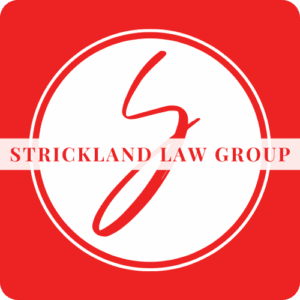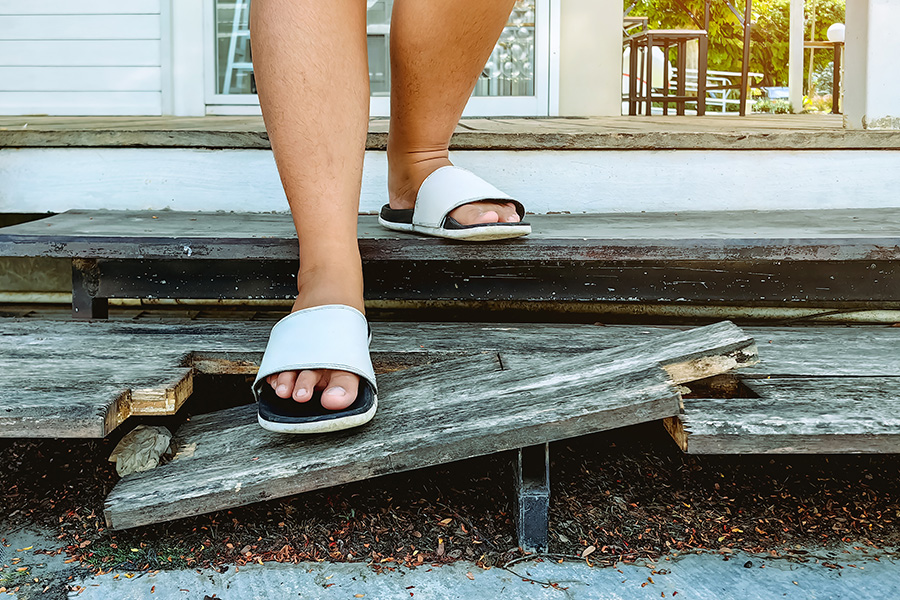The lakefront Airbnb on Lake Martin looked perfect in the photos. The reviews were glowing. But when the deck railing gave way, sending you falling 15 feet onto the rocks below, your dream Alabama vacation became a nightmare. Now you’re facing surgery, months of recovery, and mountains of medical bills. Airbnb points to the host. The host blames the property management company. Their insurance companies all deny responsibility. Welcome to the complex world of vacation rental injuries, where nobody wants to pay for dangerous properties that hurt guests.
The Explosion of Alabama Vacation Rentals and Hidden Dangers
Alabama’s vacation rental market has exploded. From Gulf Shores beach houses to Birmingham lofts, Cheaha Mountain cabins to Lake Martin retreats, thousands of properties now host millions of guests annually. But unlike hotels with corporate safety standards and regular inspections, many vacation rentals hide serious dangers behind pretty photos and five-star reviews.
Michael Strickland, founding attorney at Strickland Law Group with over 30 years handling premises liability cases, sees the casualties of this boom. “Traditional hotels have commercial insurance, safety protocols, and trained staff. Airbnb hosts might be anyone with a spare room and a smartphone. When guests get hurt, they discover the harsh reality – that cozy cabin might have no insurance, no permits, and no accountability.”
The most common dangers lurking in Alabama vacation rentals include decks and balconies that haven’t been inspected in years, stairs without proper railings or lighting, pools and hot tubs with broken gates or defective equipment, fire hazards from amateur electrical work, carbon monoxide risks from improperly vented heaters, and slippery surfaces without warning signs or proper maintenance.
These aren’t minor issues. Guests have suffered traumatic brain injuries from falls, near-drownings in unmaintained pools, severe burns from fire hazards, and even deaths from carbon monoxide poisoning. Yet determining who’s responsible becomes a shell game of corporate structures and insurance exclusions.
Untangling the Web of Airbnb Liability
When you’re hurt at an Alabama Airbnb, multiple parties might share responsibility. Understanding who’s liable determines whether you recover full compensation or get stuck with crushing medical debt.
The Property Host’s Responsibility
The person listing the property on Airbnb has primary responsibility for guest safety. They must maintain safe premises, warn about known dangers, fix hazardous conditions, ensure compliance with local codes, and provide accurate descriptions and photos. But many hosts are just regular people who don’t understand their legal obligations. They might not even have proper insurance.
Alabama law requires property owners to keep premises reasonably safe for invited guests. Airbnb guests are considered “invitees” entitled to the highest level of protection. Hosts who fail to maintain safe properties face liability for resulting injuries. The challenge is that many hosts are judgment-proof – they lack assets or insurance to pay significant damages.
Airbnb’s Corporate Shield
Airbnb works hard to avoid liability for injuries at listed properties. Their terms of service claim they’re just a platform connecting hosts and guests, not responsible for property conditions. They require users to waive claims and agree to arbitration instead of jury trials. This corporate structure is designed to protect Airbnb’s billions while leaving injured guests with limited options.
Michael Strickland, partner at Strickland Law Group, challenges these tactics: “Airbnb profits from every booking and controls many aspects of the transaction. When they know about dangerous properties but keep them listed, or when their policies encourage unsafe practices, they share responsibility. We’ve found ways to hold Airbnb accountable despite their legal shields.”
Property Owners vs. Property Managers
Many Alabama Airbnbs involve multiple layers of ownership and management. The actual property owner might live out of state, hiring a local company to manage rentals. Some properties have separate owners and long-term lessees who sublease through Airbnb. Each arrangement creates different liability issues.
Property management companies operating in Alabama often have deeper pockets and better insurance than individual hosts. They also have professional duties to maintain properties and ensure safety. When management companies fail these duties, they become viable defendants in injury claims.
Insurance Coverage Confusion in Vacation Rental Injuries
The insurance landscape for Airbnb injuries is a minefield of exclusions and gaps. Understanding what coverage exists – and what doesn’t – is crucial for recovery.
Homeowner’s Insurance Exclusions
Most homeowner’s insurance policies exclude commercial activities like short-term rentals. When hosts get sued for guest injuries, they’re shocked to discover their regular insurance won’t cover claims. Some hosts lie to insurance companies about rental activities, leading to coverage denials and policy cancellations when injuries occur.
Airbnb’s Host Protection Insurance
Airbnb provides “Host Protection Insurance” up to $1 million for liability claims. But this coverage has massive holes. It excludes many common injuries, requires hosts to maintain primary insurance, has been known to deny valid claims, and forces lengthy claim processes while victims suffer. This coverage is secondary, meaning it only applies after other insurance is exhausted.
Commercial Vacation Rental Policies
Sophisticated hosts and property management companies carry commercial vacation rental insurance. These policies provide better coverage but still have exclusions and limits. Multiple insurance policies might apply to one injury, creating coordination nightmares and finger-pointing between carriers.
Common Airbnb Injuries Across Alabama Destinations
Different Alabama vacation destinations see patterns in rental injuries. Understanding these patterns helps identify liability and strengthen claims.
Gulf Shores and Orange Beach Properties
Beach rentals suffer from salt air corrosion affecting balcony railings and stairs. Hurricane damage might be cosmetically repaired while structural problems remain. Pools lack required safety equipment. Beach access paths become dangerous without proper maintenance. These coastal properties often have out-of-state owners who never inspect their investments.
Lake Martin and Smith Lake Rentals
Lake properties feature aging docks and boat houses with rotten wood. Steep paths to water without railings or lighting. Decks built by amateurs without permits. Water toys and equipment that haven’t been maintained. These properties attract large groups whose weight exceeds deck capacity.
Birmingham Metro Area Rentals
Urban rentals in Birmingham, Huntsville, and Montgomery often occupy older buildings with code violations. Historic homes converted to rentals may have dangerous stairs, inadequate fire exits, and electrical problems. Security failures in urban areas lead to criminal attacks on guests who expected safe accommodations.
Mountain and Rural Cabins
Cheaha State Park area cabins and rural retreats present unique dangers. Propane heaters without carbon monoxide detectors. Wildlife encounters due to inadequate securing. Septic system failures. Wells with contaminated water. Remote locations delay emergency response when accidents occur.
Critical Steps After an Airbnb Injury in Alabama
Your actions immediately after an Airbnb injury determine whether you recover fair compensation or get left with nothing.
Document everything before leaving the property. Take extensive photos and videos of the dangerous condition that caused your injury. Photograph the entire property, not just the hazard. Get contact information from any witnesses, including other guests. Save your Airbnb reservation, messages with the host, and the original listing.
Report the injury through Airbnb’s platform immediately, but don’t rely solely on their process. Call local code enforcement to document violations. File a police report if criminal negligence is involved. Get medical treatment immediately and tell providers you were injured at a vacation rental – this documentation becomes crucial evidence.
Don’t communicate further with the host, property manager, or Airbnb representatives without legal counsel. They’re gathering information to deny liability, not to help you. Any statements you make become ammunition against your claim.
Frequently Asked Questions About Alabama Airbnb Injuries
Can I sue Airbnb directly for my injuries? While Airbnb tries to avoid liability through its terms of service, certain circumstances create corporate responsibility. If Airbnb knew about dangerous conditions, failed to remove problematic listings, or their policies contributed to your injury, they might share liability. Experienced lawyers know how to navigate arbitration requirements and find exceptions.
What if the host has no insurance or assets? This common problem requires investigating all potentially liable parties. Property owners, management companies, maintenance contractors, or even previous hosts might share responsibility. Strickland Law Group excels at finding all insurance coverage and liable parties to maximize recovery.
How long do I have to file an Airbnb injury claim in Alabama? Alabama’s statute of limitations is generally two years for premises liability claims. However, claims against out-of-state defendants or corporate entities might have different deadlines. Some insurance policies require earlier notice. Contact attorneys immediately to preserve all claim rights.
What if I signed a waiver at the rental property? Many hosts try using liability waivers to avoid responsibility. Under Alabama law, these waivers cannot excuse gross negligence or code violations. Waivers signed under duress or without proper disclosure might be invalid. Don’t assume a waiver prevents recovery without legal review.
Can I recover if the property had good reviews? Yes. Previous guests might not have encountered the specific hazard that injured you. Conditions deteriorate over time. Some hosts delete negative reviews or pressure guests to remove them. Good reviews don’t excuse dangerous conditions that violate safety codes.
What damages can I recover from an Airbnb injury? Alabama law allows recovery for medical expenses, lost wages, pain and suffering, permanent disability, and other losses. If the host’s conduct was reckless, punitive damages might apply. The challenge is finding adequate insurance or assets to pay these damages.
Why Airbnb Injury Cases Require Specialized Legal Help
Vacation rental injuries involve complex liability issues that standard personal injury lawyers might not understand. Strickland Law Group brings specific advantages to these challenging cases. They understand premises liability law and how it applies to short-term rentals. They know how to pierce Airbnb’s corporate shield and navigate arbitration requirements.
With over $1 billion recovered and more than 100 trials, they have resources to investigate properties, hire experts, and fight corporate legal teams. They work with building inspectors, safety engineers, and insurance coverage experts who strengthen cases. Most importantly, they’re not intimidated by Airbnb’s billions or aggressive legal tactics.
Michael Strickland have seen how vacation rental injuries devastate families who just wanted a nice getaway. They fight to hold all responsible parties accountable, from individual hosts to billion-dollar corporations that profit from dangerous properties.
If you’ve been injured at an Airbnb, VRBO, or other vacation rental anywhere in Alabama, you need attorneys who understand this complex area of law. Call Strickland Law Group at 334-269-3230 for a free consultation. They’ll investigate who’s really responsible, find all available insurance coverage, and fight for the compensation you deserve. Don’t let Airbnb and negligent hosts point fingers while you suffer. Get experienced lawyers who know how to hold them all accountable.
Legal Disclaimer: This blog post is for informational purposes only and does not constitute legal advice. While efforts have been made to ensure accuracy regarding Alabama premises liability law and vacation rental regulations as of 2025, laws and platform policies change frequently. Information about Airbnb’s Host Protection Insurance and terms of service should be verified with current policies. References to specific Alabama locations and common hazards are based on general patterns and may not reflect all properties. Insurance coverage varies significantly between properties and hosts. Information about Strickland Law Group, including attorney experience, case results, and contact information, should be verified directly with the firm. Past results do not guarantee future outcomes. Each vacation rental injury case is unique based on specific property conditions, applicable agreements, and circumstances. Arbitration requirements and liability waivers require individual legal analysis. For legal advice regarding your specific vacation rental injury, consult with a qualified Alabama premises liability attorney immediately. Time limits apply to filing claims. No attorney-client relationship is created through reading this blog.

